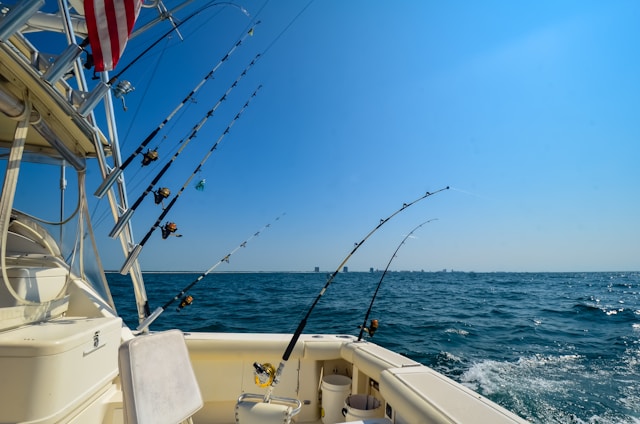
Offshore fishing trips can be thrilling, allowing anglers to reel in big catches far from shore. However, venturing into open waters also comes with its own set of risks. Whether you’re a seasoned angler or new to offshore fishing, ensuring safety is paramount for a successful and enjoyable experience. Here are essential safety tips that can help you navigate the challenges of the offshore fishery and make your trip both secure and rewarding.
Preparing for the Trip
Before you even set sail, preparation is key to ensuring a smooth and safe offshore fishing experience. First, make sure you check the weather forecast thoroughly. Unexpected weather changes can quickly turn a peaceful day on the water into a hazardous situation. Knowing the forecast will help you plan your trip around storms or rough seas. In addition, it’s a good idea to monitor the weather throughout the day, as conditions can shift unexpectedly while you’re out at sea.
Another crucial preparation step is inspecting your boat. Safety starts with ensuring that your vessel is in optimal condition. Ensure the engine, fuel system, and communication devices function correctly. This is especially important for offshore trips where assistance may be far away. Ensure a fully stocked first-aid kit and safety equipment such as life jackets, flares, and a whistle. This will help you stay prepared for any unexpected situation, no matter how remote you are.
Safety Gear is Essential
Wearing the proper safety gear is vital once out on the water. Life jackets should be worn at all times, especially when the boat is in motion or when you’re moving around on the deck. Although it’s easy to assume you’ll be safe without one, accidents can happen quickly. A life jacket ensures that you remain afloat even if you fall overboard. It’s also wise to have extra life jackets for guests or fellow anglers who might not have their own and ensure all gear is properly fitted for comfort and effectiveness.
Aside from life jackets, a satellite phone or a marine radio is another safety essential. While cell phones are handy, they are not always reliable when you’re offshore. A satellite phone allows you to communicate with Coast Guard services or your home base in an emergency, no matter how far you are from shore. Additionally, marine radios provide an easy way to contact other vessels or the Coast Guard, making them invaluable for staying in touch while fishing. Always check your communication devices before leaving the dock to ensure they are in good working order.
Know How to Navigate Safely
Navigating offshore waters requires skill and understanding of the area. It’s essential to be familiar with the local waters, including the location of reefs, sandbars, and other underwater obstacles. A detailed map of the area or a GPS device can significantly reduce the chances of getting lost or running aground. It’s also advisable to bring backup navigation tools in case your primary system fails. Tools like compasses and paper charts should be on hand as a reliable backup.
Equally important is knowing how to handle rough seas and unpredictable currents. Even if you’ve fished in the area, conditions can change rapidly. Be prepared to adjust your plans if the seas become too rough or you’re approaching areas known for strong currents. By maintaining a constant awareness of your surroundings and understanding the tides, you’ll be better equipped to avoid dangerous situations. Navigating carefully can differentiate between a successful trip and unnecessary risks.
Know Your Limits and When to Turn Back
While it’s exciting to venture further offshore for bigger catches, knowing your limits as a fisherman and a boat operator is essential. If you’re unfamiliar with deep-sea fishing or if the weather worsens, it’s best to play it safe and head back to shore. There’s no shame in turning back when conditions become dangerous. Knowing when to call it quits can save lives, especially when inexperienced anglers or harsh weather conditions are involved.
In addition, make sure everyone aboard is aware of the trip’s boundaries. Setting limits on how far you will go offshore can help everyone remain focused on safety. Having a plan for turning back is just as important as having a plan for going out. This will ensure that you don’t push the limits too far and can avoid dangerous situations that may arise if you stay out too long or venture too far from shore.
Maintain Situational Awareness
Additionally, always have a buddy system in place. This will help ensure that there is always someone looking out for the well-being of others. Whether it’s checking on a fellow angler or observing the condition of the boat, having an extra set of eyes can help catch potential issues early. By staying alert, you can make informed decisions that help avoid potential risks while enhancing the overall experience of your offshore fishing adventure.
Offshore fishing can be an unforgettable experience, offering a chance to connect with nature and pursue big catches. By prioritizing safety and being prepared for the challenges of the open water, you can ensure that your fishing trips remain prosperous and secure.